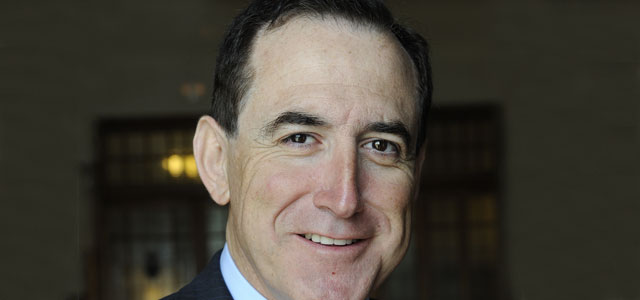How effective CSR can boost risk management

There is much more to CSR (Corporate Social Responsibility) than feeling good and public relations. It can be a valuable risk management tool, says Antonio Huertas of MAPFRE.
"There is a higher court than courts of justice, and that is the court of conscience. It supersedes all other courts." Mahatma Gandhi's words from a century ago serve as more than a moral compass by which to live one's life, they also encapsulate what is to me the essence of corporate social responsibility (CSR).
I like to think of CSR as the conscience of a corporation, guiding senior management on their journey to maximising shareholder returns legally and ethically. Harnessed effectively and supported from the top down, it can contribute both to improving relationships with stakeholders and enhancing business outcomes.
Furthermore, our experience at MAPFRE has shown that CSR policies that are fully aligned with the business from day one have contributed to improved risk management, both internally across our operations and externally with our clients, particularly those seeking coverage for major risks.
How have we achieved this? The answer lies in governance leadership. Good governance ensures that once relevant risks have been identified, measured and categorised in line with their severity and probable frequency of occurrence, adequate control measures are put in place to mitigate them and that implementation of these measures is periodically audited, with corrective remedies incorporated where needed.
Our dedicated Risk Committee, which reports directly to the Board of Directors, oversaw the design of this risk management governance process hand in hand with our CSR committee, which meant that everything - business and non-business - was taken into account, with the resulting policies, procedures and mindset being transferred not only to all levels of our organization, but also to our clients.
I would like to share one notable example of this CSR-based approach to risk management with you.
In 2017, MAPFRE was included on the CDP (Carbon Disclosure Project) climate change A-list, in recognition of our pioneering action on climate change, water security and deforestation. That's something we're justifiably proud of, but we don't leave things there - we have taken the same criteria CDP apply in assessing MAPFRE and turned the lens on our corporate clients, holding them to the same standards when assessing the risks they present for coverage.
In terms of climate change for example, CDP scores responding companies based on two factors: the level of detail and comprehensiveness of their reporting, and their awareness of climate issues, management methods and progress on acting on climate change.
As such, when a large client or potential client operating in a global sector (aviation, energy, construction etc.) seeks coverage for a relevant risk - a new power generation facility for example - our underwriting teams employ CDP-grade criteria in evaluating their level of climate change preparedness. The resulting score is appropriately weighted and duly considered in determining how the client addresses risk management, which plays a key role in whether to accept or reject a proposed risk.
The business logic behind our approach is abundantly clear to me: if we as a company are aware of our duty to protect and care for the planet and take action to do just that, not only are we contributing positively to the fight against climate change, we are also reducing the potential risks we face for non-compliance with basic legal obligations in this respect, which beyond any monetary sanction, would greatly affect the corporate reputation we strive so earnestly to uphold. It follows that applying these same rigorous standards to our clients' risks enhances their overall risk management process, which is good for them in terms of the corresponding premium reduction it delivers, and good for us as far as reduced claim probability goes.
The days of thinking about CSR as a burden or something that has to be done to appease minority-interest groups are long gone: embracing it holistically opens up a whole new world of opportunities.

Antonio Huertas is Chairman and CEO of MAPFRE
